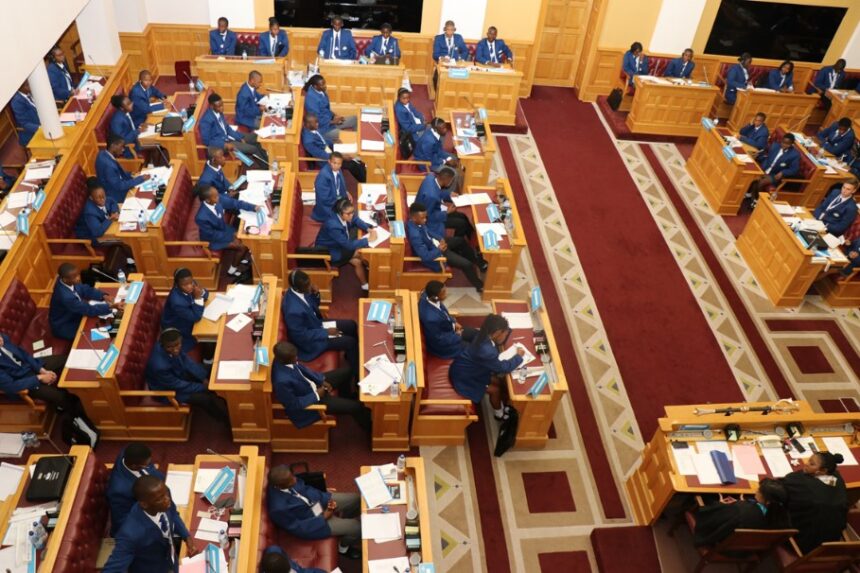National Assembly speaker Peter Katjavivi said the Children’s Parliament is more than just a forum, as it empowers the youth in various ways.
“It is a catalyst for change. It empowers our youth to engage in democratic processes, shaping a future where every child’s voice is heard and their rights are upheld,” he said in a media statement issued on Friday
ahead of the planned sixth session of the Children’s Parliament.
The parliamentary session is set to commence from 12 July till 19 July, and more than 60 learners from the country’s 14 regions are expected to attend.
The one-week session will be under the theme ‘Transforming Education in
Namibia’. This year’s session will address critical post-Covid-19 challenges in the education sector such as school dropouts and learner pregnancy.
Statistics from the education ministry indicate that 15 000 learners dropped out of school in 2021 alone, of which over 2 000 were a result of learner pregnancy.
Katjavivi said Namibia attaches great importance to the rights of children, as it has enacted and ratified a myriad of domestic and international conventions to protect the rights of children.
National Assembly spokesperson
Sakeus Kadhikwa noted that Parliament
was committed to fostering a platform to discuss inclusive education for the benefit
of the Namibian child. “This session will not only focus on identifying challenges, but also on proposing actionable recommendations that can contribute to a transformative education system in Namibia,” he said . The Children’s Parliament, premised on the Namibian Constitution,
calls for freedom of expression and fundamental human rights, and is an initiative of the Namibian Parliament in partnership with the United Nations Children’s Fund (Unicef).
The upcoming session will see youth representatives converging to listen to expert presenters, and further discuss pressing issues that include equitable access to education, gender/violence and education, disability and education, governance and education, and addressing the digital divide exacerbated by the pandemic, among others.
This is in line with the ongoing education reform agenda in the Namibian education system.
Prior to being sworn in, learners will undergo an intensive induction programme. Thereafter, they will break into standing committees to look at issues of concern.
-priscillamukokobi@gmail.com



